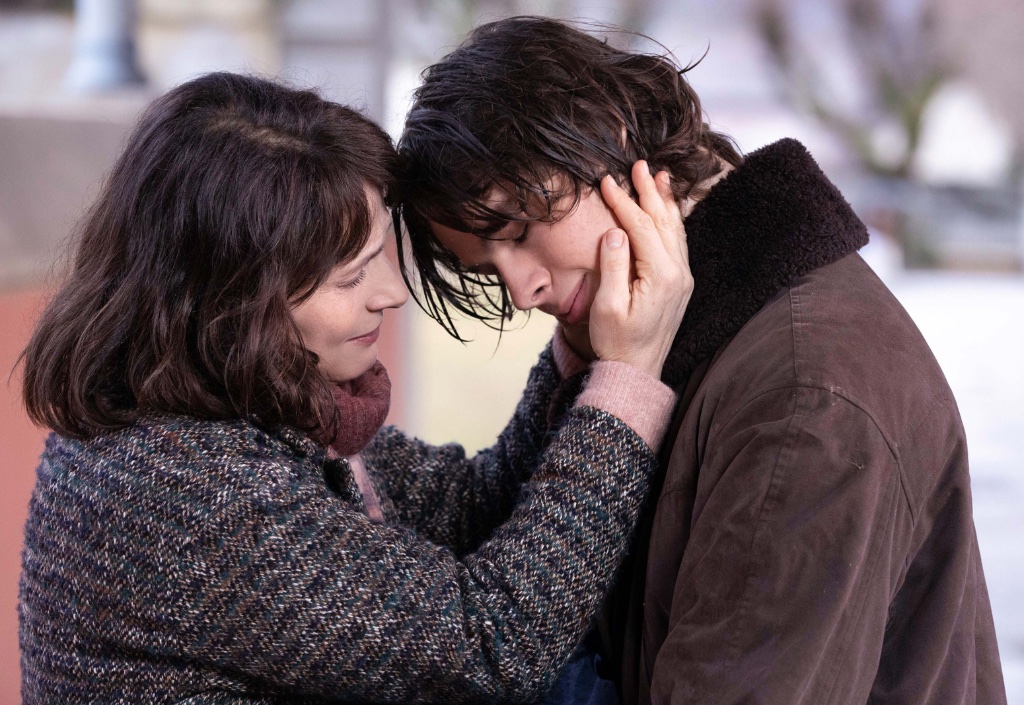
Director Christophe Honoré has spoken of his latest film Le Lycéen (Winter Boy), which evokes the death of his father when Honoré was only 15, as his most personal yet. He has chosen, however, not to place the action in the 1980s, when he was in his teens, but in the very recent past. The anti-Covid masks worn by many of the characters may quickly give the film a dated feel, but the eternal themes of grief and loss explored so movingly by Honoré should have a lasting appeal.
The movie, which is entirely set in the winter months, is framed at various moments by the attempts of the 17-year-old (Honoré has aged the character by two years) Lucas to explain or narrate this defining time in his life. While driving Lucas to boarding school, his father (played by Honoré himself) urges his son to work hard and not waste his life as he had, but after they narrowly avoid being caught in a car crash, Lucas retrospectively reconstructs this as a fatal sign of what was to come.
When Lucas is awoken at the boarding school the next morning by his older brother Quentin (played by one of Honoré’s preferred actors, Vincent Lacoste), who has driven from Paris, he learns that his father has been killed in a road accident.
Returning to the family home in a small village in the Alps, the teenager finds himself veering between different emotions, first politely greeting friends and family who have gathered in the house and then howling with rage and grief at his loss. Juliette Binoche, making her début in a movie directed by Honoré, shows us what a magnificent actor she is in the role of Lucas’s mother, Isabelle, who tries to keep her own emotions in check in order to care for her grieving sons.
After the funeral, the decision is taken that Lucas will spend a week in Paris with his brother, who needs to work around the clock to support his struggling career as an artist. During this time, Lucas, who already has been shown to be sexually active with a friend at school, gives full rein to exploring his sexuality while at the same time confronting his grief. He moves from a random pickup to making a pass at Quentin’s gay roommate Lilio (played with great subtlety by Erwan Kepoa Falé) to trying to imitate Lilio’s occasional job as a prostitute by propositioning an older man whom he had seen visiting Lilio.
After being thrown out by Quentin, Lucas returns to his hometown, where his breakdown and subsequent stay in a mental hospital are not easy to watch. Binoche excels in these scenes as Isabelle desperately tries to be as loving as possible to her son, yet is not afraid to show her anger, especially when Lucas suggests his father’s death might have been suicide. She is even afforded a chance to speak to the camera toward the end of the film in a way similar to Lucas’s intermittent moments of self-reflection.
If Honoré does not quite avoid certain cinematic clichés (such as intercutting Lucas’s conversation with a priest in a church with him having sex with the pickup), Kircher’s extraordinary performance in the central role makes the film truly memorable: he is utterly believable as someone on the cusp between childhood and adulthood, at one moment naive and deeply vulnerable, at another knowing and seemingly street-smart. The changing emotions on his face, which are followed by the camera in close-up throughout the film, come across as entirely natural and convincing. The Best Actor prize he picked up at the San Sebastian Film Festival was well deserved.
It would seem that Kircher’s future as a major actor is now assured, and it is also a pleasure to see Christophe Honoré (the quality of whose cinematic output can be extremely variable) on top form once again.
Favorite